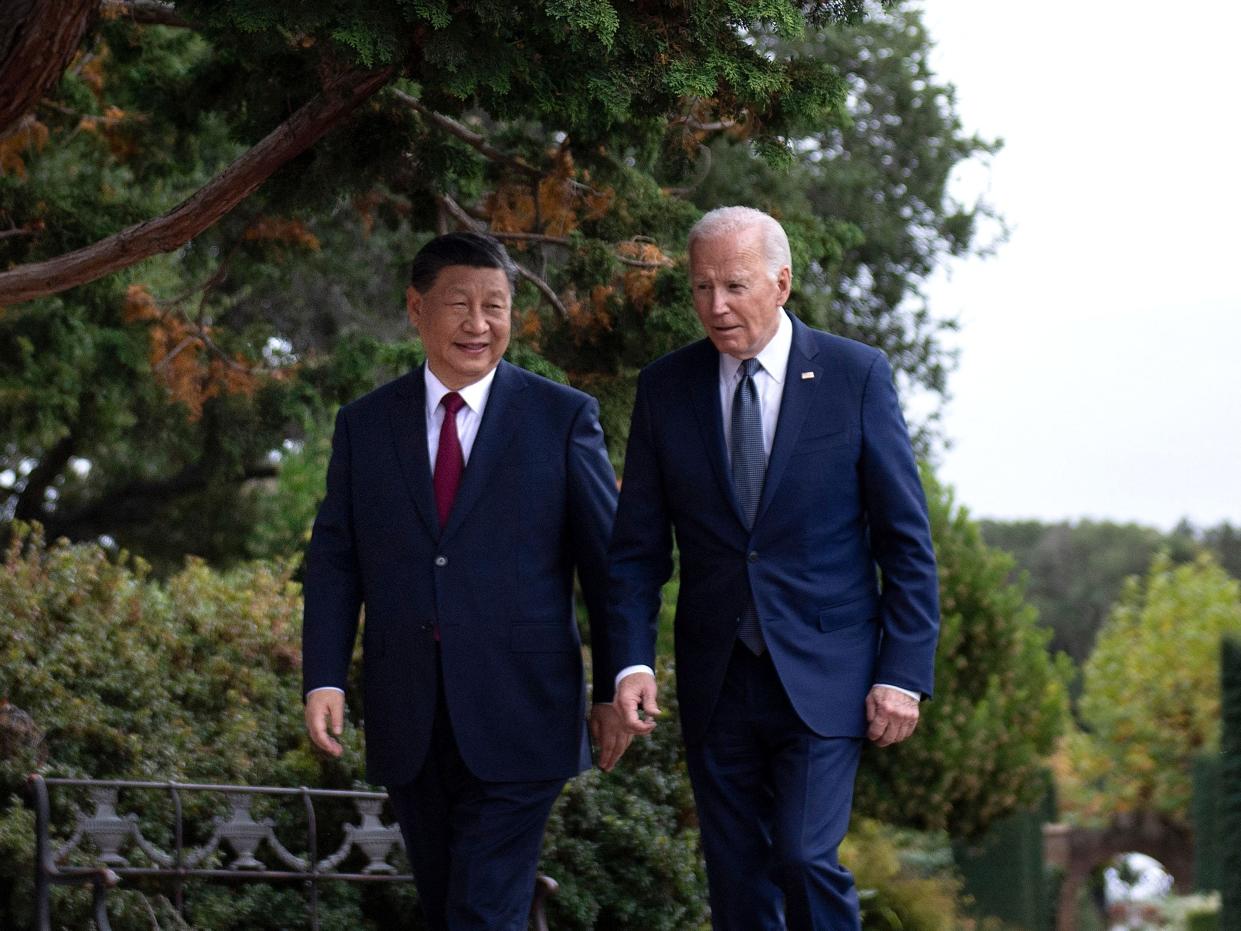Xi's claim that the US is trying to trick China into invading Taiwan is meant to divide the US and its allies: experts

Xi Jinping said the US was trying to trick China into invading Taiwan, the Financial Times reported.
The Chinese leader made the claim to European Commission President Ursula von der Leyen, per the FT.
Experts told BI the accusation was meant to drive a wedge between the US and its European allies.
Xi Jinping's claim that the US is trying to trick China into invading Taiwan is aimed at driving a wedge between the US and its European allies, experts told Business Insider.
The Chinese leader made the accusation in April last year during a meeting with European Commission President Ursula von der Leyen, the Financial Times reported over the weekend, citing people familiar with the matter.
One person who spoke to the FT said Xi had issued the same warning to officials in his own country.
According to Andrew Scobell, a distinguished fellow with the China program at the US Institute of Peace, in speaking out in this way, Xi was trying to "sow division" between the US and its allies and "drive a wedge" into transatlantic policy toward China.
He told BI that Xi likely believed what he said and probably reached the conclusion from the "almost incessant alarmist" narrative in the US that Beijing is planning to attack Taiwan in the next few years.
But in addressing the issue with the EU leader, Xi was trying to counter the US narrative and undermine transatlantic relations, Scobell said.
Craig Singleton, a senior China fellow at the nonpartisan Foundation for Defense of Democracies, went further.
"By framing the US as provocateurs, Xi aims to rally domestic support and caution America's Western allies against escalating their support for Taiwan," he told BI.
Singleton, who spent more than a decade serving in the US government in a series of national security roles, said Xi's claim effectively portrays China as a "rational" actor in a "complex" geopolitical environment.
Part of Xi's strategy is also to "deflect parallels between Ukraine and Taiwan," he added, with China aware that such comparisons "resonate deeply with European nations who might feel compelled to intervene to protect Taiwan's democracy."
Meanwhile, Timothy Heath, a senior international defense researcher at RAND, said Xi made the accusation to von der Leyen knowing the message would "certainly" be passed to the US.
"Also, China knows that the EU is generally ambivalent about backing the United States in a war with China over Taiwan," he added.
For decades, the US has adopted a policy of "strategic ambiguity" toward Taiwan, positioning itself as the country's most steadfast ally, while declining to explicitly say whether it would come to Taiwan's aid if China attacked.
However, over the last few years, the mood in Washington, DC, has shifted toward greater hawkishness, Graeme Thompson, an analyst with the Eurasia Group, told Business Insider in November.
Former officials, including Mike Pompeo and John Bolton, have even called for Taiwan's recognition as an independent state.
This would be a red line for the EU. Under its One China policy, the EU recognizes the People's Republic of China as the sole legal government of China.
And while the US approved an $8 billion defense package for Taiwan in April, the EU has sent none.
The US has also discussed ways it could help defend Taiwan, including deploying thousands of drones if China invaded, with the "unmanned hellscape" buying time for the US military to come to Taiwan's aid, the top US admiral in the Pacific said.
The EU, meanwhile, rejects the use or threat of force, favoring the status quo and peaceful resolution of differences across the Taiwan Strait.
Despite their differences, the US and its European allies share the consensus that China represents a challenge, even a threat, and agree that de-risking, preserving the status quo in the Indo-Pacific, and opposing China's actions globally is imperative, according to a February policy paper by the UK-based Royal Services Institute.
Read the original article on Business Insider


